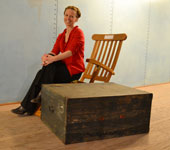Bill
One day, a letter simply addressed to “Pier 21, Halifax, Nova Scotia,” arrived on my desk. The first line read, “I don’t know if anyone is ever going to read this.” In his letter, Bill Pineo described the experience of being a young soldier in 1940, waiting for his ship to depart from Pier 21 and to take him overseas to join the war effort. While the anxious soldiers were counting down to what might be their last glimpse of Canada, another vessel came alongside and suddenly there was music.
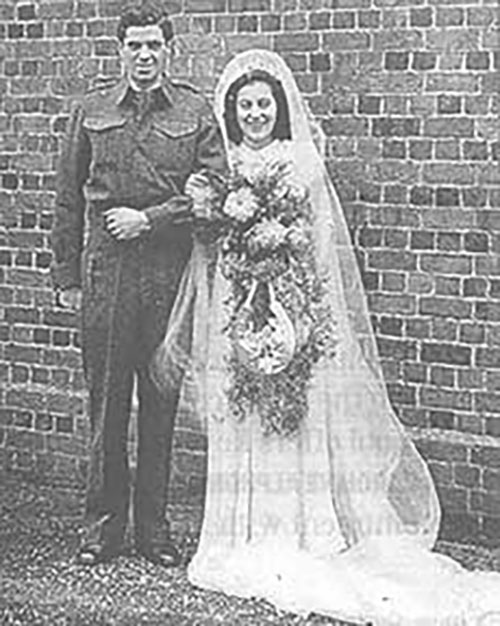
“…the air was filled with the beautiful clear voice of Gracie Fields echoing throughout the harbour. It had to be the favourite of almost everyone, and the timing was most appropriate: Wish Me Luck as You Wave Me Goodbye. A short silence was followed by another great song as the ships started to move into their respective positions, We’ll meet again, don’t know where, don’t know when, but I know we’ll meet again some sunny day. The silence on the ships was broken by cheers, and it is almost certain that the day will remain in the memory of all those who were there.”
Mr. Pineo wrote that he never knew if it really was Gracie Fields singing, or if someone aboard that ship had just decided to play a record as a tribute and farewell to the boys. The event had clearly made a lasting impression on him.
Curious about Gracie Fields, I did a little research. The Yorkshire girl had been a huge star of stage, screen and radio in Britain and North America. Ms. Fields was at the height of her fame in 1938 and toured the United States, Canada and South Africa. During the Second World War, Gracie entertained British troops in France and raised $500,000 for the British war effort.
Ann
A few months after Bill Pineo’s letter arrived I was approached by a lady who was looking for a newspaper photograph. We had an extensive photo collection but very few newspaper images and I knew that none of ours were what she wanted. She was walking away disappointed when I said, “Maybe if you tell me what the picture looked like I can think of something similar.” She replied that there couldn’t possibly be anything similar because it was a photograph of her at age eleven singing to departing soldiers with Gracie Fields. With great excitement, I yelled, “You sang with Gracie Fields!,” and with surprise she replied, “You know who Gracie Fields is?!”
The event had made as big an impression on her as it had on Mr. Pineo. Our visitor introduced herself as Ann Miller and explained that over the last few decades she had often wondered what became of the boys that she sang to with Gracie Fields, as she stood on the deck of the Duchess of Richmond that afternoon.
Early in 1939, her father, a First World War veteran of the R. N. Reserve, was re-commissioned and posted to Singapore. His wife and four children, ranging in ages from three months to ten years old stayed behind in Sussex, England. In April of 1940, he cabled asking in code if his wife and children would join him in Singapore via Vancouver. The Atlantic at that time was considered the safest way of travelling to the orient. It was agreed that Ann’s mother and the children would be more secure in Singapore for the duration of the war.
Ann wrote, “So with sounds of Dunkirk for background ‘music,’ my brave mother made the necessary arrangements. Stored furniture, packed precious belongings, obtained our passage and with a suitcase each, we set off on our voyage…
Gracie formed a Children’s Choir, for the ship’s concert and we were taught the songs of the day, war songs and hits from Pinocchio, a film which had just been released. On about the 11th or 12th of June our ship berthed in Halifax. Those who were going on to Montreal were not allowed ashore. We children amused ourselves watching the loading of a troop ship alongside.
Late in the afternoon there was an announcement over the loud-speaker for all children to join the Captain on the bridge. Naturally we all raced up and there we found our friend Gracie and the Captain, who had decided it would be nice if we sang to the soldiers on the other ship.
We did not need to be told that they were going to England to fight and perhaps die for us. We sang Pack Up Your Troubles, We’ll Meet Again, Wish Me Luck as You Wave Me Good-Bye and then in the late afternoon as the troop ship sailed Gracie sang Red Sails in the Sunset, her beautiful voice resounding across the sea.
I was only just eleven and was really saddened by it all. It was something I never forgot and through the intervening years, I often wondered about the fate of those brave young men. Never ceasing to think of them whenever I heard Red Sails in the Sunset.
Ann met Gracie once again, when the singer visited Melbourne in 1964 but our story is about a different reunion.
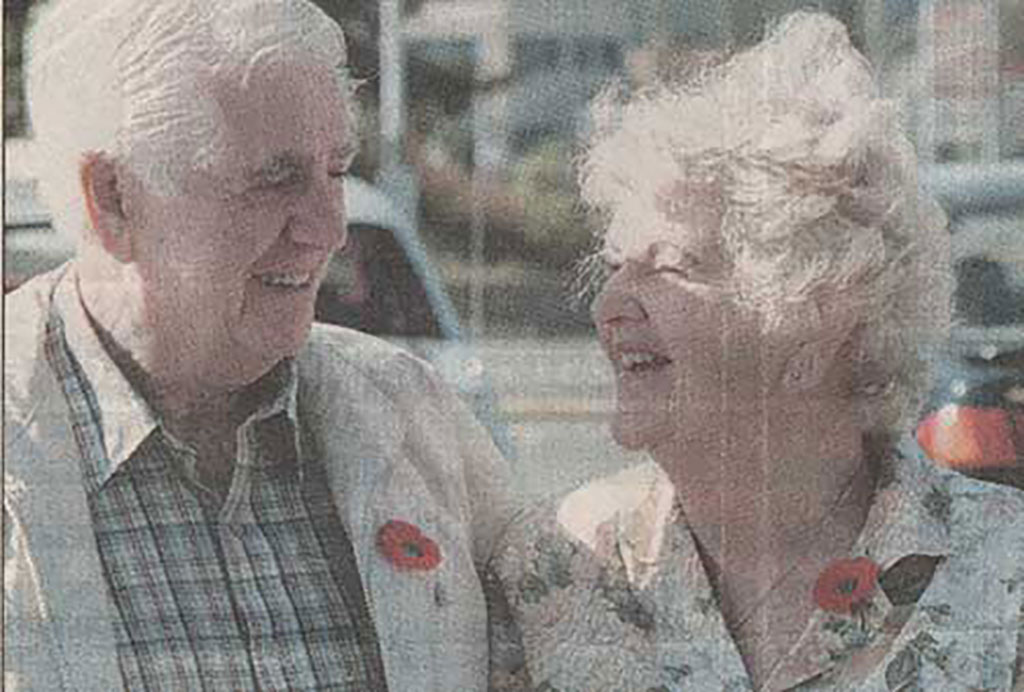
Serendipitously when she visited us, Ms. Miller was traveling across Canada and making her way to Mr. Pineo’s hometown of Nanaimo, BC the following week. Arrangements were made for a meeting and the two had a wonderful reunion, even making it into the local newspaper. Since then we have heard from Mr. Pineo frequently and had multiple visits from his son. Ms. Miller, who now resides in Australia, generously contributed her memories to our story collection and we received a wonderfully detailed account from her younger brother, who wrote that he had been waving at some soldiers and instigated the entire impromptu concert.
Someone sang a song and someone heard it. Someone wrote a letter and someone read it. Every time we reach out there is the potential for a connection.
Derek
I have been sharing this story for over ten years and just a few months ago another connection was made. Derek Paton wrote:
“While researching for a conference about the University of Toronto’s political scientist and expert on Czechoslovakia, my friend Professor H. Gordon Skilling (1912-2001), I found this moving article that you put up on the web.
Gordon Skilling and his wife, Sally (née Bright), were on board the SS Duchess of Richmond sailing from England to Canada in early summer 1940. And so were my grandparents, uncle and mother. Gordon Skilling and I confirmed that it was the same trans-Atlantic crossing because the singer Gracie Fields was on board. Somewhere amongst my things I have the same photograph of Gracie Fields and the children. My uncle, Peter Hesky (b. 16 October 1932), is the grinning boy, second from the right, and I think my mother, Ina (b. 5 Feb. 1933), is the girl at the bottom, second from the left (or possibly the girl on the right, about halfway up—I need to see a better print of the photo). The Heskys had come from Prague, after a year in Montreux and a year in London, and soon settled in Toronto.
Derek recently forwarded the images below from the crossing and wrote, “ Just left of centre, the little blackhaired girl is indeed Ina Hesky, who would, eighteen years later, become my mother after marrying a Royal Canadian Navy man“.
Please enjoy the photographs and do write if you, or anyone you know, has a connection to this crossing.
Gracie Fields poses with children on board the SS Duchess of Richmond in 1940.
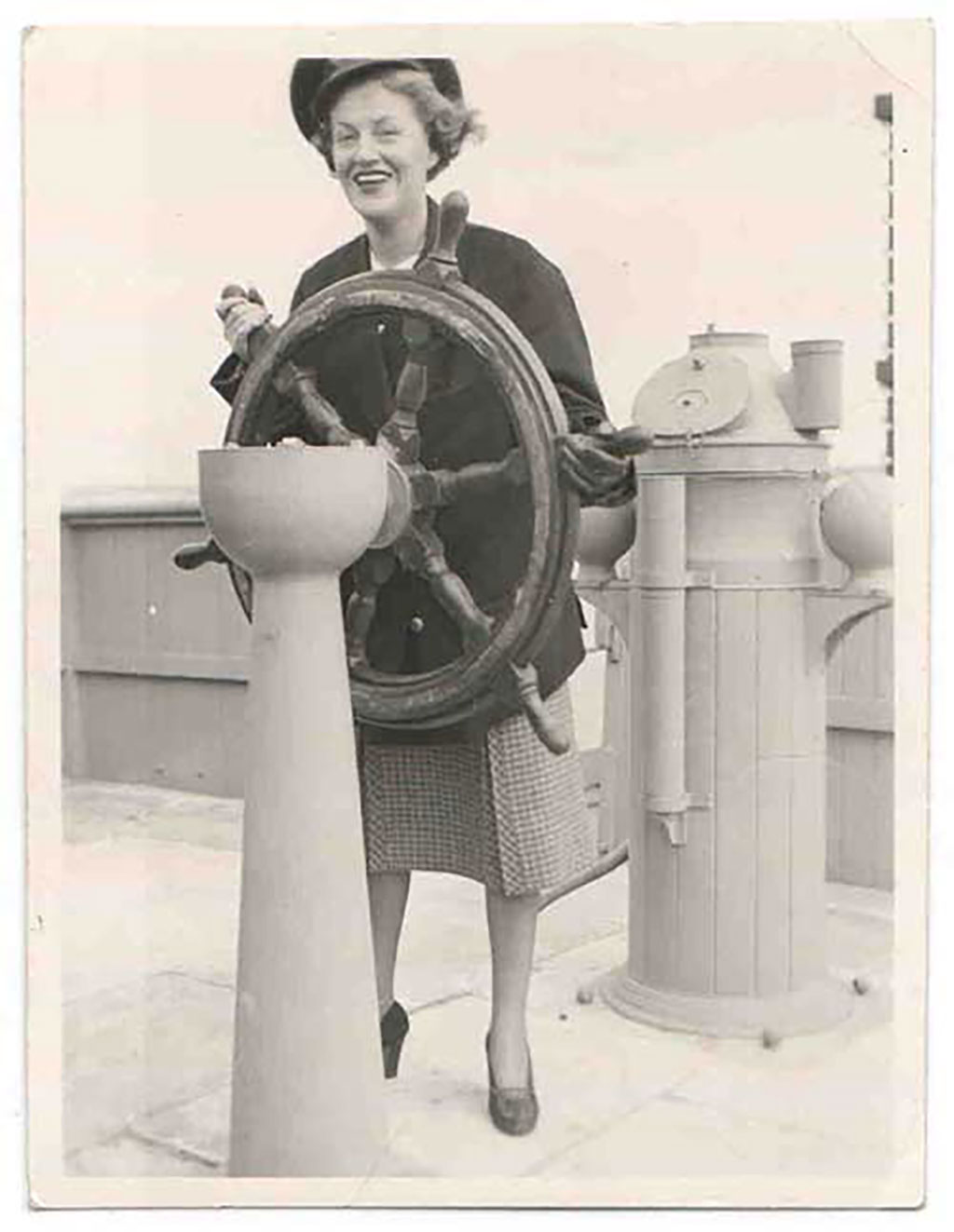
Credit: Derek Paton
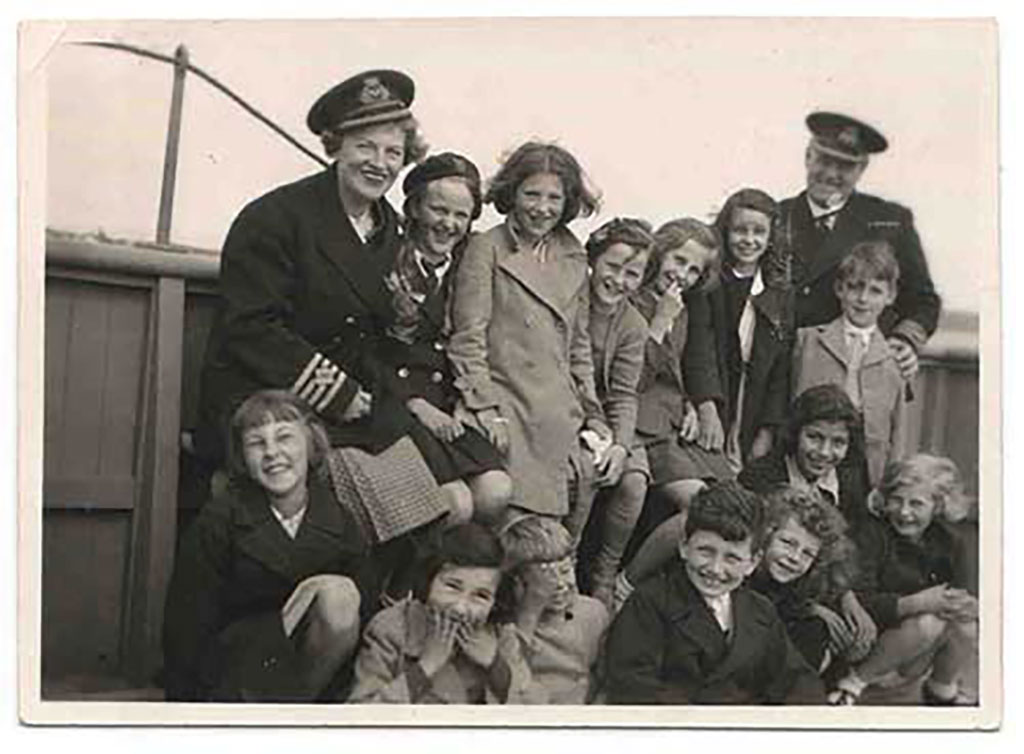
Credit: Derek Paton
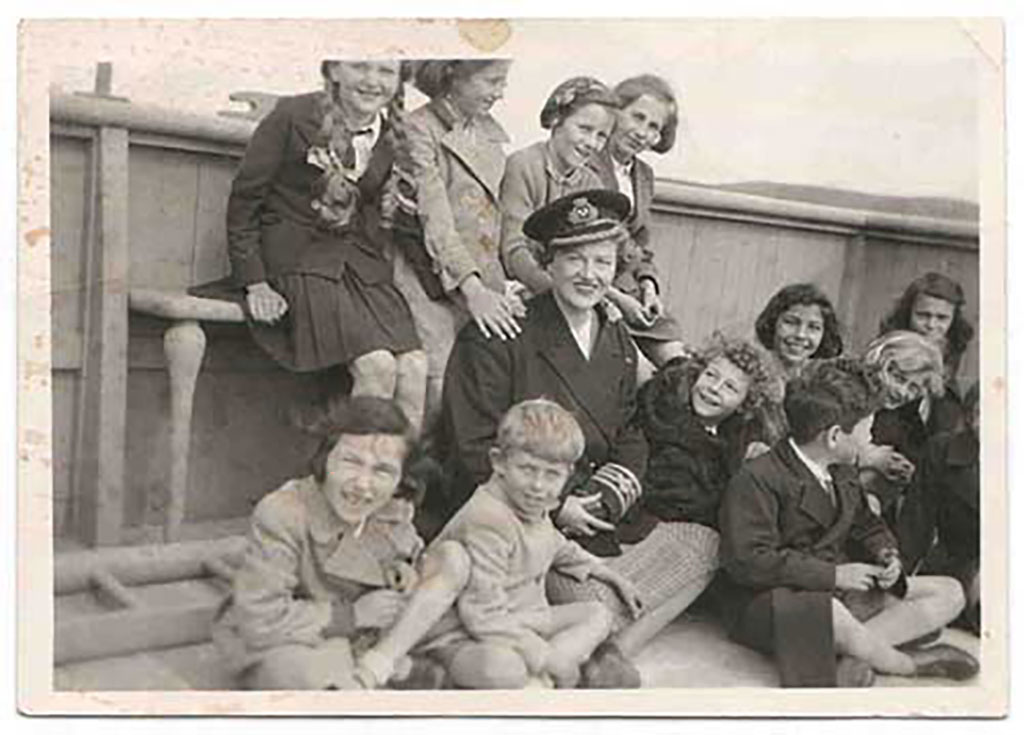
Credit: Derek Paton
